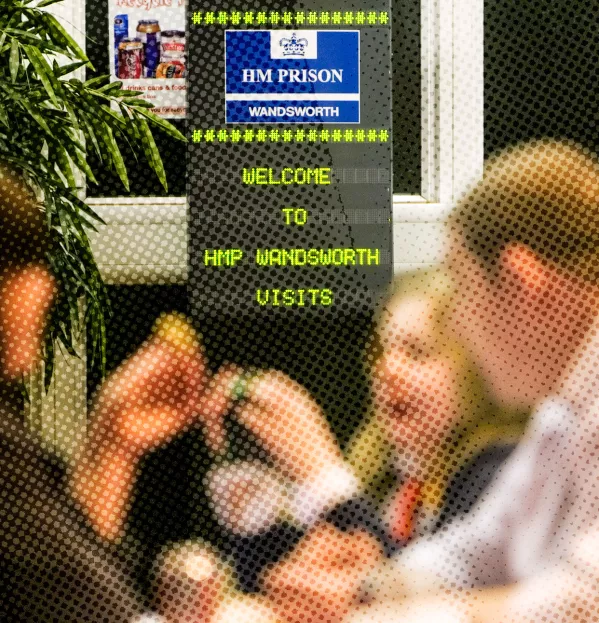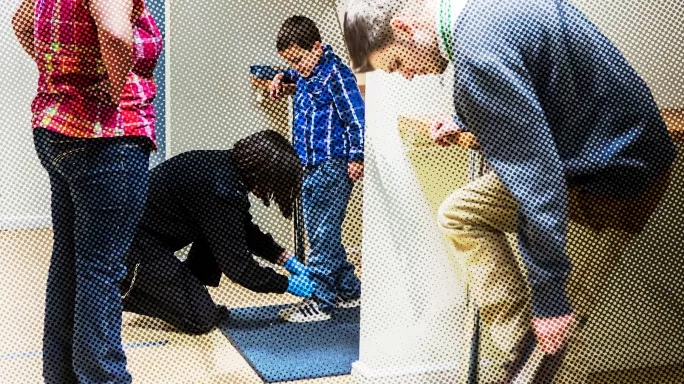- Home
- Teaching & Learning
- General
- How to support a pupil with a parent in prison
How to support a pupil with a parent in prison

It is estimated that 310,000 children every year have a parent in prison across England and Wales. And with the prison population steadily increasing - potentially exceeding 100,000 within five years - the amount of children impacted will only grow.
A parent being sent to prison is often a traumatic experience for a child, involving not just the disruption and upset of their mum or dad’s removal but in some instances witnessing the arrest or having to move house (just 5 per cent of children remain in their own home after their mother is imprisoned).
These children, therefore, need support, with research warning that 25 per cent of those aged 11 or over had an increased risk of mental health problems.
But as yet there is no official body that has responsibility for, or ownership of, this demographic - not the criminal justice system, not healthcare, not the care system, nor education. Across charities and campaign groups, therefore, these children are known as the ones being left to “fall through the cracks”.
And their experience can have a significant impact on their school career. For children who do have to move house after a parent goes to prison, periods of disrupted learning are common because they have no eligibility for priority places.
Visiting a parent in prison also often affects a pupil’s school attendance record, explains Aimee Hutchinson, children and young person’s quality and development manager at prison charity Pact. Family visiting sessions are usually held mid-week, “as this fits more easily into the prison regime and staffing”, she says.
Read more:
- How to offer strength-based pastoral support
- How to harness pupils’ fight or flight response
- How to develop wellbeing while schools are in “perma-crisis”
As well as presenting with emotional or behavioural problems due to the trauma they’re undergoing, “children with a parent in the criminal justice system, who have not done anything wrong, become victims themselves of societal judgement, stigma and shame,” says Sarah Beresford, associate of the Prison Reform Trust (PRT). This is particularly the case if their parent’s crime has been subject to sensationalised media coverage.
Many children find themselves bullied or dropped from peer groups, while others choose to isolate themselves because of a sense of shame or “otherness”.
How can schools support children with parents in prison?
Awareness of what these pupils are going through is growing, says Hutchinson, in part due to initiatives such as Hidden Sentence training, which educates staff across various professions on the experience of families of prisoners.
But teachers need better access to “tools to go back into school and have conversations with children and young people about imprisonment”, she adds.
Currently there is a real lack of confidence in even broaching the subject, she says, often due to an understandable fear of upsetting or embarrassing those impacted.
To rectify this, schools should work to create an environment in which both teachers and pupils feel able to have the type of conversations that ensure no one is going through this alone.
So, how do you create that environment, in practice?
1. Destigmatise the issue
Work to ensure that imprisonment is not taboo, says Hutchinson, to help children feel confident that they can tell their teacher that a parent is in prison “without any shame, stigma or judgement”. This will also help to encourage children to support each other, she says, “because we know that kids bully others based on what they don’t know”.
Whether by holding class assemblies on the issue, putting posters up in the pastoral care area or even including maths problems around, for instance, the time and distance of a prison visit, there are a range of ways to discuss and consider the topic through an educational lens.

Pact is currently working on a toolkit to further help teachers do exactly this, including training, lesson plans and resources, which it hopes to start offering to schools in the new year.
One feature of the toolkit is a short animation that follows the journey of two children after their mum is arrested, along with age-appropriate lesson plans.
“So at GCSE level they’ll be discussing the film from the angle of, ‘Who are the victims of a crime?’,” says Hutchinson, “while for key stage 2 they’re looking at it from the angle of, ‘If this is happening to our friend at school, how can we better support them?’”
2. Empower students
Families involved in the criminal justice system often feel disempowered, says Beresford, “because everyone else is making all the decisions, from the police who make the arrest, to the judge who makes the decision to send them away, to the probation officer who gives a set of conditions”.
If children then feel forced into discussing this painful topic, it risks further alienating them, so a sensitive, gentle approach is key.
“If you say, ‘I’m so sorry to hear dad’s in prison,’ and you get an aggressive response, that’s understandable,” says Beresford. “Don’t give up on that, but gently ask again another time, just to remind them. Because a lot of children take time to trust a person enough to open up to them.”
Maintaining good relationships and seeing beyond the surface issues is also hugely important, Beresford says, while Hutchinson adds that timing is crucial.
“Children and teachers have told us that a lot of the anxiety and behavioural difficulties they face in class come through in the run-up to a prison visit, as well as the post-visit week,” she says, so this may be the time to particularly consider offering support.
3. Reach out
Many teachers have little idea of how to approach the issue of parental imprisonment, because it is not a routine part of pastoral training. And while Beresford - a former secondary school teacher - feels this should be changed, she also wants teachers to feel assured that they do already have the fundamental skills needed to help a child going through this: “Empathy, sensitivity, listening, giving children space to talk and helping them form an action plan in their own words.“
These skills need to be channelled in the most effective way, and so in 2022, as part of the PRT, Beresford created the child impact assessment: “A very simple and practical framework that gives teaching staff a ‘way in’,” she says, with advice on which terms to use and questions to ask, as well as how to make an action plan to find the child the support they need.
This is currently in the process of being offered to local authorities to distribute to their schools, while Pact’s toolkit will be piloted initially in North Wales, with the hope that it will expand further in time.
In the meantime, both practitioners advise that any member of school staff who wants to know more about how to support a child with a parent in prison should familiarise themselves with specialist organisations and resources, such as Families Outside and The National Information Centre on Children of Offenders.
“Contact an organisation like us,” says Hutchinson, “and there will always be someone who’s happy to sit on the phone and answer your questions.”
Cherry Casey is a freelance writer
You need a Tes subscription to read this article
Subscribe now to read this article and get other subscriber-only content:
- Unlimited access to all Tes magazine content
- Exclusive subscriber-only stories
- Award-winning email newsletters
Already a subscriber? Log in
You need a subscription to read this article
Subscribe now to read this article and get other subscriber-only content, including:
- Unlimited access to all Tes magazine content
- Exclusive subscriber-only stories
- Award-winning email newsletters
topics in this article



